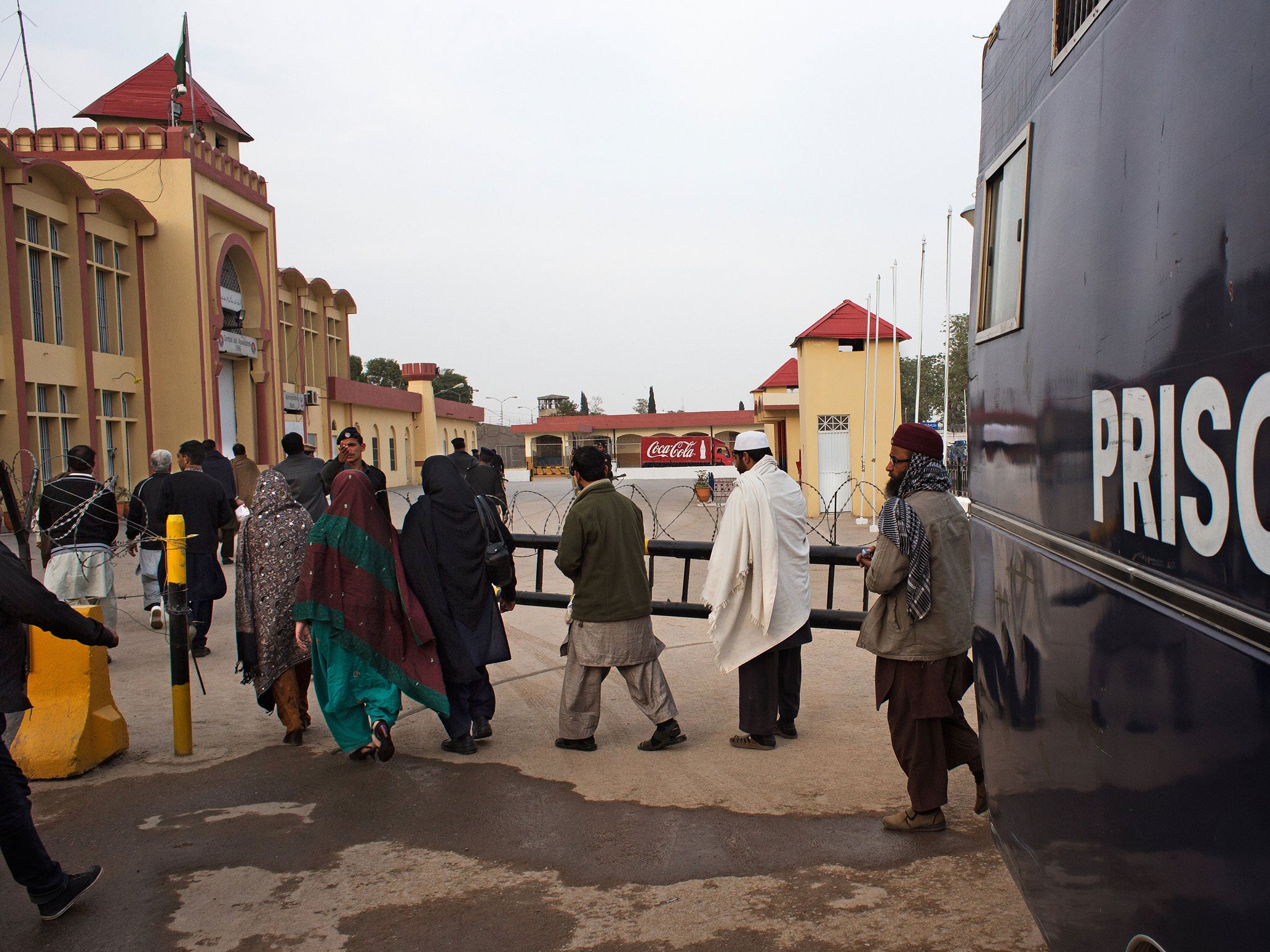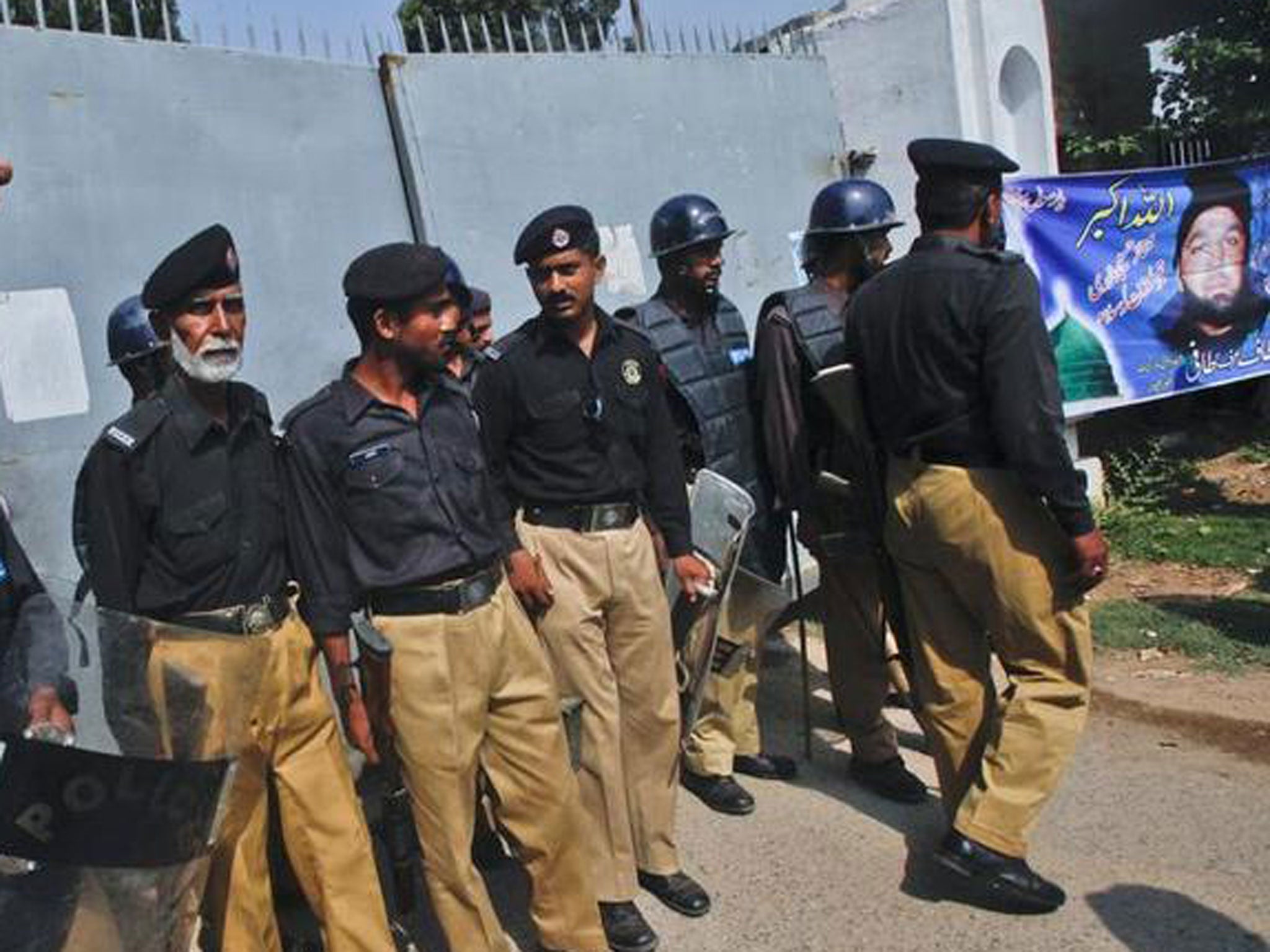Mohammad Asghar case: Act now to save Briton on death row in Pakistan for blasphemy
Charities, politicians and activists demand justice for mentally ill Scottish pensioner described as 'pale, dehydrated, shaking and barely lucid'

Your support helps us to tell the story
From reproductive rights to climate change to Big Tech, The Independent is on the ground when the story is developing. Whether it's investigating the financials of Elon Musk's pro-Trump PAC or producing our latest documentary, 'The A Word', which shines a light on the American women fighting for reproductive rights, we know how important it is to parse out the facts from the messaging.
At such a critical moment in US history, we need reporters on the ground. Your donation allows us to keep sending journalists to speak to both sides of the story.
The Independent is trusted by Americans across the entire political spectrum. And unlike many other quality news outlets, we choose not to lock Americans out of our reporting and analysis with paywalls. We believe quality journalism should be available to everyone, paid for by those who can afford it.
Your support makes all the difference.Leading British-Asian politicians, academics, human rights campaigners and Islamic scholars are calling for a mentally ill Scottish pensioner sentenced to death for blasphemy in Pakistan to be released from prison on humanitarian grounds.
In an open letter published by The Independent, influential figures from across the political spectrum are urging Pakistani President Mamnoon Hussain to use his discretionary powers to allow Mohammad Asghar to leave jail and resume treatment for paranoid schizophrenia.
The signatories have expressed their concern over the deteriorating health of the 70-year-old grandfather and the failure to include medical evidence during the trial that concluded last month.
Among the figures calling for clemency is the shadow Justice Secretary Sadiq Khan, as well as representatives of the Islamic Society of Britain, the Association of British Muslims and the Muslim Institute. “Like so many British Pakistanis, Mr Asghar was a successful businessman and pillar of the community who lived for many years in the UK, where through a lifetime of hard work he helped promote the bonds of friendship and understanding between his native and adopted countries,” the group states.
The group adds that it is “concerned that his recovery from illness is impossible while he remains detained at Adiala jail where his lawyers fear he is in danger of taking his own life”.
Mr Asghar, who lived in Scotland for 40 years, was detained under the Mental Health Act in 2010 shortly before travelling to Pakistan, where he became embroiled in a property dispute with a local man. This man later went to the police with letters written, but never sent, by the Briton in which he claimed to be the Prophet Mohamed.
An affidavit provided by a Scottish expert in the field of geriatric mental illness confirmed that Mr Asghar’s behaviour was a symptom of his psychiatric disorder. She said that Mr Asghar, who is physically weak after a stroke, requires urgent medical, psychological and social intervention to help him recover.
The businessman was previously treated in hospital after attempting suicide whilst awaiting trial. It is feared he could be the victim of fellow inmates who target those who challenge Pakistan’s blasphemy laws.
Read more:
Overcrowded and violent, Adiala jail that is now home
Sadiq Khan: To a Muslim of Pakistani heritage, this is a disgrace
Lawyers who visited Mr Asghar in prison said he is sharing a cell with a number of other men and was not receiving appropriate treatment or classified as a suicide risk. He was described as “ pale, dehydrated, shaking and barely lucid” by independent observers.
The Pakistani High Commission in London raised hopes among international human rights campaigners who are seeking his release when it indicated medical evidence should form part of the appeal, although this could take up to five years.
Mr Asghar’s lawyers were sacked by the judge during the trial and replaced with a state-appointed counsel. In a remarkably candid statement the Commission said the case would be “thoroughly investigated so an innocent person does not become victim of a misplaced judicial process”. Mr Asghar’s family has written to David Cameron and Scottish First Minister Alex Salmond, urging them to intervene. The Prime Minister told the House of Commons he was “ deeply concerned about the case”.

Senior Foreign Office ministers including Baroness Warsi have been in contact with Pakistani authorities. A spokesperson for the Foreign and Commonwealth Office said the British Government was dedicated to preventing the execution of a UK national. “We will continue to provide consular assistance to Mr Asghar and his family during this difficult time. We have continuously made representations to the Pakistan government on behalf of Mr Asghar and we will continue to do so.”
No one has been executed in Pakistan since a moratorium on the death penalty in 2008. A second British man, Masud Ahmad, 72, originally from Glasgow, is currently on bail in Lahore also on blasphemy charges. He was allegedly tricked into publicly reading from the Koran – an act which is forbidden for members of the minority Ahmadi sect to which he belongs. He now faces three years in jail.
Subscribe to Independent Premium to bookmark this article
Want to bookmark your favourite articles and stories to read or reference later? Start your Independent Premium subscription today.
Join our commenting forum
Join thought-provoking conversations, follow other Independent readers and see their replies
Comments